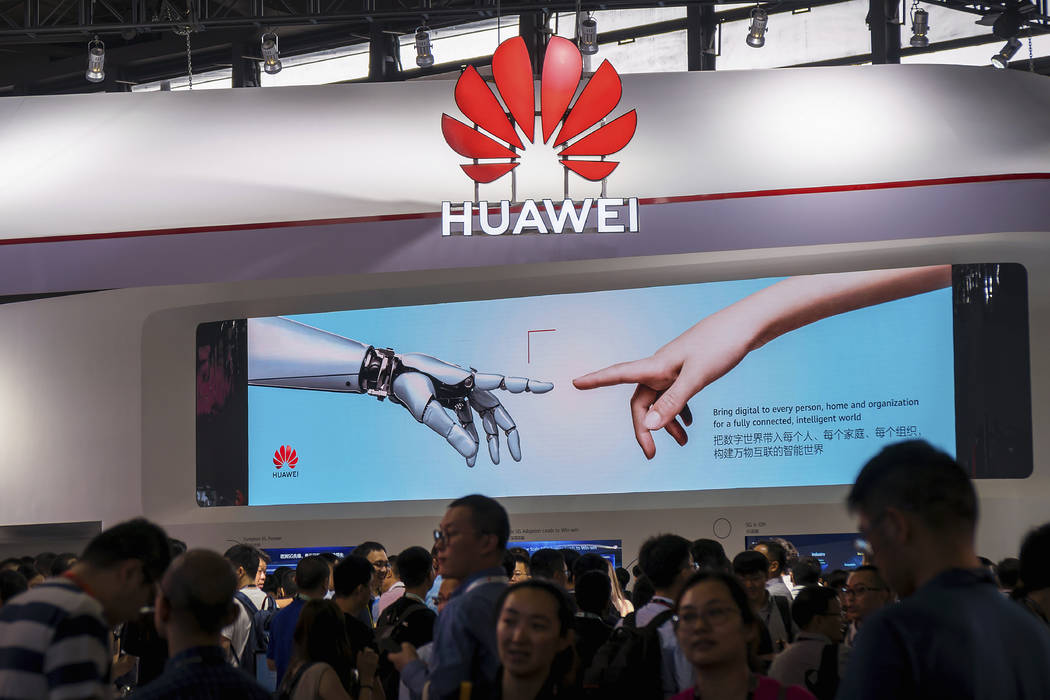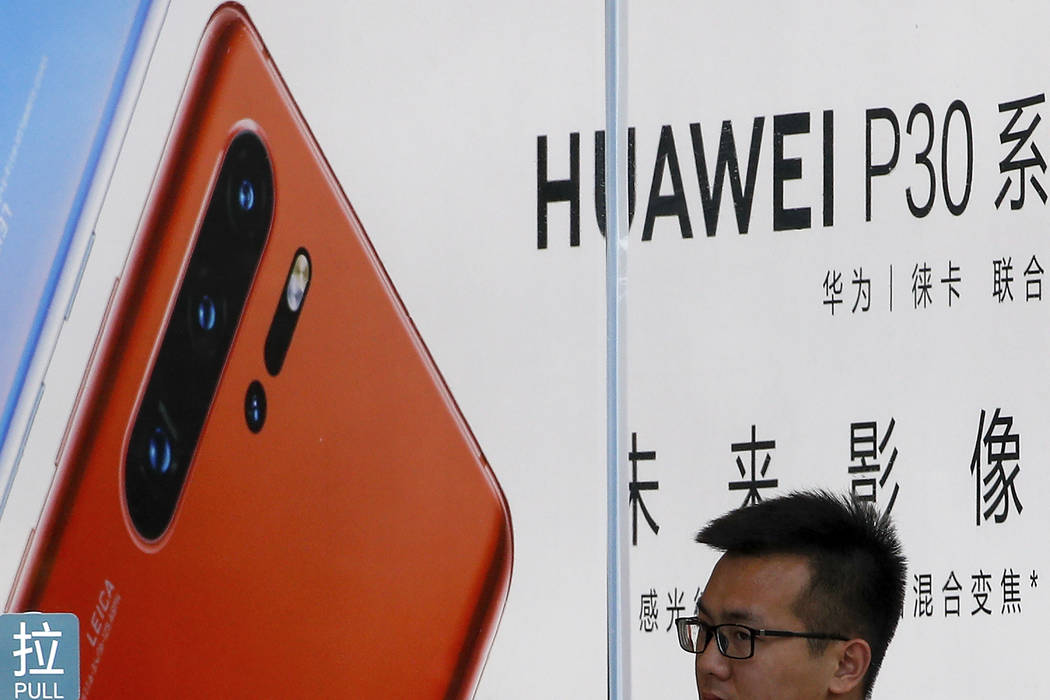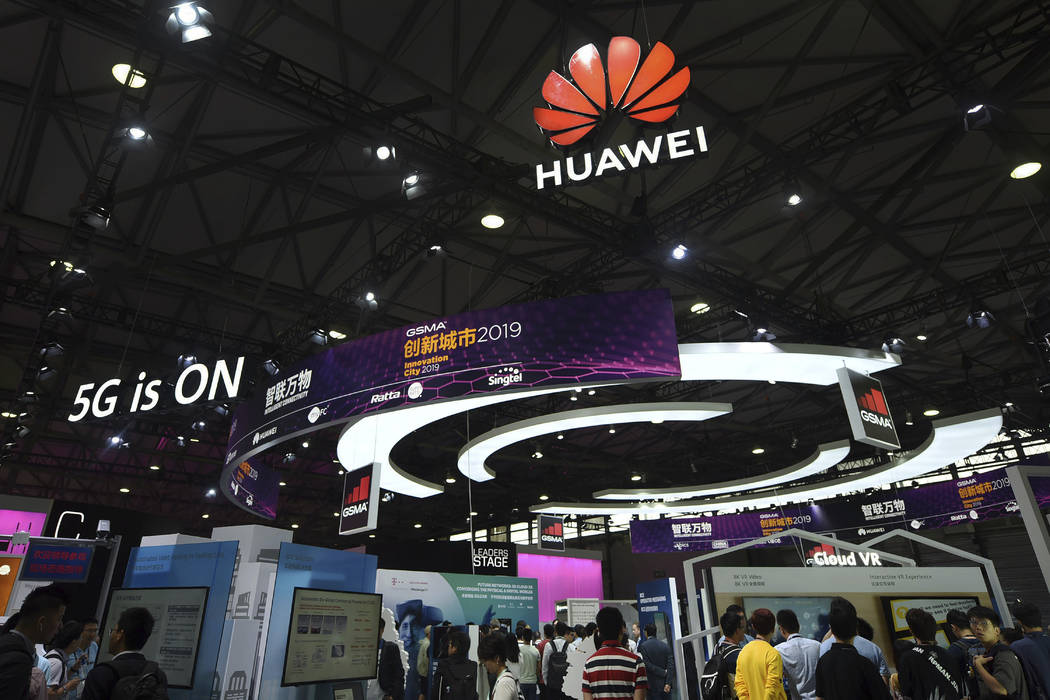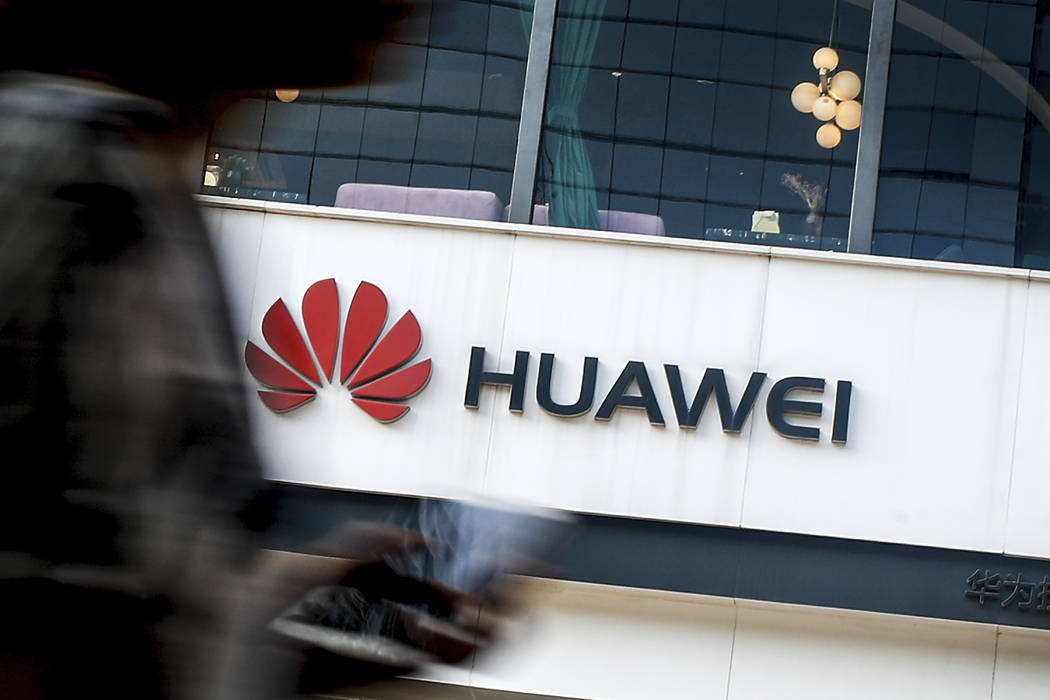Blacklisting by US not a problem as Huawei sales rise 23.2%
BEIJING — Huawei’s sales rose by double digits in the first half of this year despite being blacklisted by Washington and its chairman, saying U.S. pressure has “galvanized our people,” expressed confidence Tuesday the Chinese tech giant will “enter a new period of growth.”
Huawei Technologies Ltd., the biggest maker of network gear for phone companies and the No. 2 smartphone brand, is scrambling to preserve its business after the Trump administration blocked access to U.S. components and technology in May on security grounds.
Sales have suffered “some impact” but Huawei avoided disruption in shipments to customers, Liang Hua said at a news conference at its headquarters in Shenzhen, near Hong Kong. He said Huawei is reviewing its product lineup to make sure it can fill orders without U.S. components if necessary.
American pressure “has galvanized our people and reinvigorated the company,” Liang said.
“We believe we will get through the difficulties and challenges in the short term and enter into a new period of growth,” he said.
Washington says Huawei is a security risk, an accusation the company denies. American officials also see Huawei as a competitive threat and a recipient of official Chinese support for technology development they say is based on improper subsidies and stealing or pressuring foreign companies to hand over know-how.
Sales in the six months through June rose 23.2% over a year earlier to 401.3 billion yuan ($58.3 billion), according to Liang. That was up from 2018’s full-year growth rate of 19.5%, but Liang warned Huawei will “face difficulties” in the second half.
Smartphone shipments rose 24% from a year ago to 118 million handsets, he said.
Liang declined to give a forecast of second-half sales, but said, “I am very confident in our full-year growth.”
Fighter plane symbolization
At the start of his presentation, a photo of a fighter plane in flight despite being hit by gunfire was projected onto a screen beside Liang. He said, “like this airplane riddled with bullet holes, we stayed the course.”
Huawei’s resilience reflects its financial and technological strength compared with its smaller Chinese rival, ZTE Corp., which was nearly driven into bankruptcy last year by a ban on access to U.S. technology over its sales to Iran and North Korea. President Donald Trump restored access after ZTE paid a $1 billion fine and replaced its executive team.
Huawei has developed its own low-end chips for use in entry-level smartphones and servers but still needs U.S. chips and other components for its most advanced products.
Liang said Huawei plans to increase this year’s research and development spending to 120 billion yuan ($17 billion). That would be a 20 percent increase over 2018 spending, which already was among the highest for any global company.
Shock waves
Washington’s decision to add Huawei to an “entity list” of foreign companies that require official permission to buy technology sent shock waves through U.S. industry. Huawei is one of the biggest buyers of chips and other components and paid American suppliers some $12 billion last year.
Trump agreed to allow vendors to sell widely available technologies to Huawei. But Liang said “we have not seen a resumption of supplies” of components needed for its core products.
Trump has suggested he might lift controls on Huawei if Washington and Beijing reach a deal to end a tariff war over American complaints about China’s trade surplus and technology ambitions.
American and Chinese trade negotiators were due to meet this week in Shanghai.
Huawei, with 180,000 employees, has for a decade fought U.S. accusations it might facilitate Chinese spying.
The company denies suggestions it might install “backdoors” in equipment to permit eavesdropping. Its founder, Ren Zhengfei, a former military engineer, told reporters earlier this year he would reject Chinese government demands to disclose his foreign customers’ secrets.
The U.S. export curbs threatened Huawei’s smartphone sales by disrupting access to the Android operating system supplied by Alphabet Inc.’s Google unit. Huawei can use the basic system, which Google provides for free, but lost access to maps and other services that require the U.S. company’s support.
Smartphone sales recovering
Ren, the company founder, said earlier smartphones sales plunged 40 percent following the ban. Liang said Tuesday sales had recovered to 80 percent of their previous level.
Liang said Huawei can develop its own operating system if necessary, based on its Hongmen system created for internet-linked cars, factory equipment and other devices.
“Using Android is always our preference,” he said. “But if the United States doesn’t let us use it, we have the capability to develop our own OS and ecosystem.”
Liang said the U.S. curbs had no effect on Huawei’s sales of next generation, or 5G, telecoms technology.
Huawei is, along with Sweden’s LM Ericsson and Nokia Corp. of Finland, a top developer of 5G networks that are meant to expand support to internet-linked cars, factories and other devices.
Huawei has signed 11 commercial contracts with foreign carriers since the May ban was imposed and has shipped a total of 150,000 base stations, according to Liang.





















